-

email us
management@plumbingdoctornj.com
-

call us now
908-873-6686
Blog
- Home > Blog
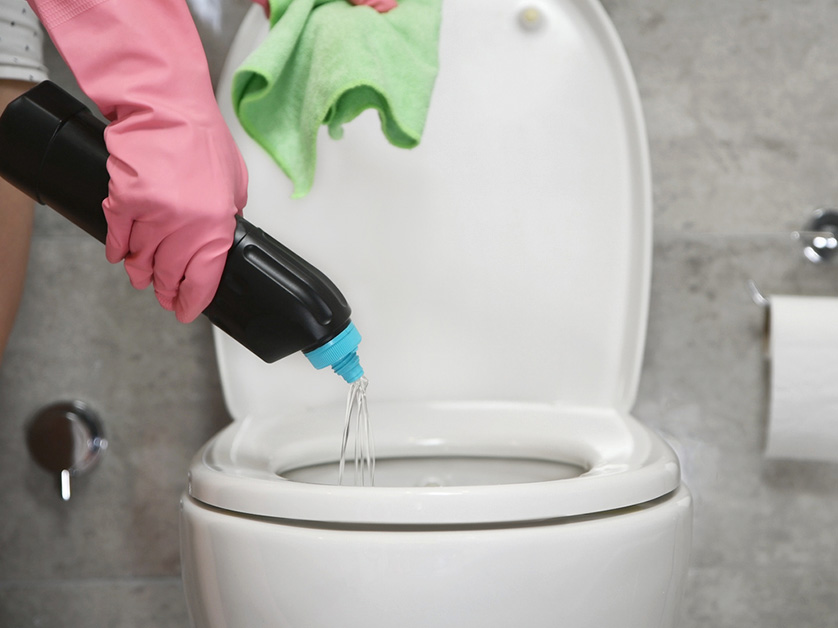
04 Oct. 2024
6 Bath & Shower Habits Your Plumber Hates
As homeowners or tenants, it’s essential to maintain a harmonious relationship with our plumbing systems. Often, what seems like a benign habit in the bathroom can lead to significant issues down the line, which can be both a nuisance and a strain on our wallets. Here are six particular habits that plumbers wish we would avoid.
1. Taking Long, Steamy Showers
Long, hot showers can be enjoyable but may lead to mold and mildew in your bathroom due to excess steam. This can require costly plumbing repairs or mold remediation. To reduce these risks, try taking shorter showers and improving ventilation by opening a window or using an exhaust fan.
2. Neglecting Drain Health
Bath bombs are fun and colorful, but they can leave residues that clog drains over time. Additionally, using a drain catcher can help prevent hair and debris from blocking your shower and bath drains. Together, these practices can help avoid plumbing issues.
3. The Misuse of Chemical Cleaners
Using chemical drain cleaners for slow drains might seem easy, but they can damage your pipes over time. Instead, try a natural mixture of vinegar and baking soda to clear mild clogs without harming your plumbing.
4. Convenience vs Care in Toilet Maintenance
Drop-in toilet cleaners may seem convenient, but they can harm the internal parts of your toilet tank. The harsh chemicals can wear down rubber and plastic components, leading to leaks. A more hands-on cleaning approach can help protect these important parts and extend the life of your toilet.
5. Overburdening Your Shower Caddy
Shower caddies are handy, but overloading them can strain your shower fixtures and lead to damage that requires repairs. To avoid this, consider using a freestanding caddy to keep your shower a relaxing space.
6. The Myth of Flushable Wipes
“Flushable” wipes can cause serious plumbing problems because they don’t break down like toilet paper. Dispose of them, along with other non-flushable items like Q-tips and cotton balls, in the trash to prevent clogs.
Plumbing Doctor of Central New Jersey is here to help with all of your plumbing needs. Call us at 908-873-6686 or fill out our contact form to schedule an appointment.
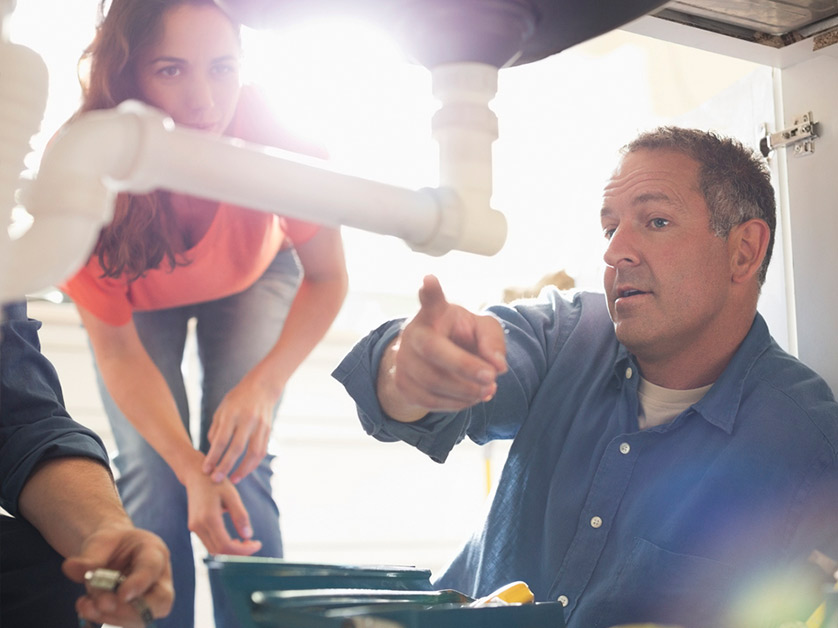
20 Sep. 2024
How Long Do Common Plumbing Pipe Materials Last?
When thinking about the maintenance and longevity of your home’s plumbing system, one critical aspect to consider is the lifespan of the various types of plumbing pipes. As an experienced plumbing contractor, Plumbing Doctor explores how long different plumbing pipe materials last to help you prepare for future upgrades and maintenance, potentially saving you from unexpected expenses and headaches.
The Lifespan of Key Plumbing Materials
Several materials are commonly used in residential plumbing systems, each with its own expected lifespan. These include:
- Copper pipes are a reliable choice for plumbing due to their resistance to corrosion and their ability to withstand high temperatures. Typically, copper pipes can have a lifespan of up to 50 years. Their durability makes them a prevalent choice for water supply lines both in residential and commercial settings.
- Brass pipes have been used in plumbing for decades and are known for their excellent resistance to rust and corrosion. With a general life expectancy ranging from 40 to 70 years, brass pipes are less common in new installations but are still found in many older homes.
- Galvanized steel pipes, once a staple in home construction, have fallen out of favor due to their susceptibility to rust and corrosion. Their lifecycle ranges from 20 to 50 years, but many homeowners and plumbers choose to replace them earlier to avoid water quality issues.
- Polyvinyl chloride (PVC) pipes are celebrated for their indefinite lifespan under the right conditions. Resistant to corrosion, chemical damage, and UV radiation, PVC pipes are often used for drain lines, vent stacks, and water supply lines in both residential and commercial plumbing systems.
- Cast iron pipes, with proper maintenance, can last up to 100 years. Known for their strength and resistance to high pressure, they are ideal for sewage and wastewater systems. However, they can be susceptible to rust and corrosion over time, requiring careful monitoring and maintenance.
Factors Impacting the Lifespan of Plumbing Pipes
The material is just one factor that determines the longevity of your plumbing pipes. Water quality, such as hardness or corrosivity, can affect the interior condition of pipes. Additionally, the water pressure and the quality of the installation play crucial roles. High pressure can cause stress on pipes, leading to leaks or bursts, while poor installation can lead to weak points that fail prematurely.
How Regular Maintenance Can Prolong the Life of Your Plumbing
Keeping your plumbing system in peak condition requires regular maintenance. This includes inspecting pipes for signs of wear or damage, addressing any issues immediately, and implementing preventive measures like water softeners to combat hard water effects. Annual checks by professional plumbers can help identify potential problems early, saving you from larger, more costly repairs in the future.
Schedule Your Plumbing Maintenance Today
By taking proactive care of your plumbing system, you can ensure its longevity and functionality. Let Plumbing Doctor help you maintain a healthy, efficient plumbing system with our top-notch plumbing maintenance services. Give us a call today at (908) 873-6686 or fill out our online form to book a consultation.
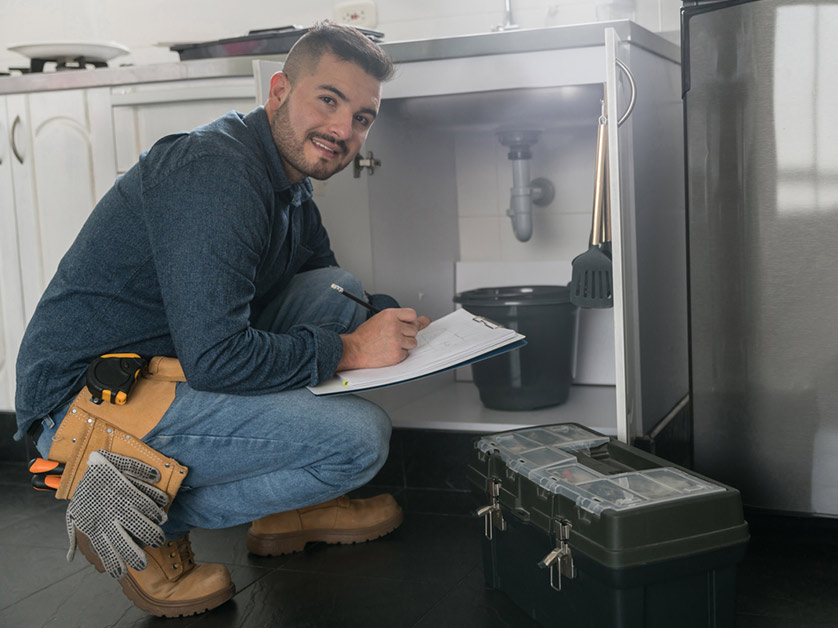
13 Sep. 2024
A Comprehensive Plumbing Checklist for New Homeowners
Congratulations on purchasing your new home! While the feeling of owning a new home is unmatched, it’s crucial to ensure that your plumbing system is in perfect shape to avoid any unforeseen disruptions. Properly inspecting your plumbing system can save you from the hassle and expenses of emergency repairs later on. In this article, Plumbing Doctor presents a comprehensive plumbing checklist for new homeowners like you.
Ensure Your Water Heater Is Up to Par
The water heater is a vital component of your home’s plumbing system, especially during chilly winters. Check the age, condition, and capacity of your water heater. Most units have a lifespan of about 10 years. If yours is nearing this age, inspect it for signs of wear or corrosion. Remember, having a water heater that adequately meets your family’s needs is crucial.
Detect and Address Water Leaks Early
Leaks are not always conspicuous but can lead to significant damage if left unattended. Examine all faucets, pipes, and plumbing fixtures in your home for signs of dripping water or moisture. Pay special attention to under-sink areas, the base of toilets, and around your water heater. Minor leaks can sometimes indicate more severe problems, so addressing them promptly can prevent costly repairs.
Assess the Condition of Sewers and Pipes
Understanding what type of pipes you have (cast iron, copper, or PVC) and their condition is vital. A professional inspection can reveal if your pipes are outdated, prone to leaks, or if they comply with current codes. If your home is older than most, ensuring your sewers and pipes are in good condition is paramount.
Check for Efficient Water Flow
Water pressure and efficiency are critical for your daily comfort. Test all showers, taps, and toilets to ensure adequate pressure and that water flows freely without any backups. Low water pressure can be a symptom of bigger plumbing issues, such as pipe blockages or leaks.
Inspect Your Property’s Drainage System
Proper drainage is essential to prevent water damage to your home’s foundation and structure. Inspect the eavestroughs and downspouts for blockages that can lead to water buildup. In areas with fluctuating weather, ensuring your home’s drainage system is functional is crucial to protecting your property.
Get Familiar With Your Shutoff Valves
Knowing the location of your main water shutoff valve can be a lifesaver in emergencies, such as a burst pipe. Familiarize yourself with its location and check to ensure it’s easily accessible and operational. Additionally, identify the shutoff valves for individual fixtures to isolate areas without disrupting the water supply to the entire house.
Schedule Regular Maintenance
Regular maintenance by a qualified plumber can significantly extend the lifespan of your plumbing system and prevent emergencies. This includes periodic checks of your water heater, sump pump, septic system if you have one, and all fixtures. In places where seasonal changes can affect your plumbing system’s efficiency, regular maintenance is even more crucial.
Let Us Help You With Your Plumbing Needs
A well-maintained plumbing system is key to enjoying your new home without the worry of unexpected repairs. This comprehensive checklist is designed to guide you through inspecting and maintaining your plumbing system effectively. Remember, when in doubt, hiring a professional like Plumbing Doctor is the best way to ensure your plumbing system is in top shape. With these steps, you can save time and money and ensure your home remains a comfortable sanctuary for you and your family. For a more thorough assessment, call us at (908) 873-6686 or visit our contact page!
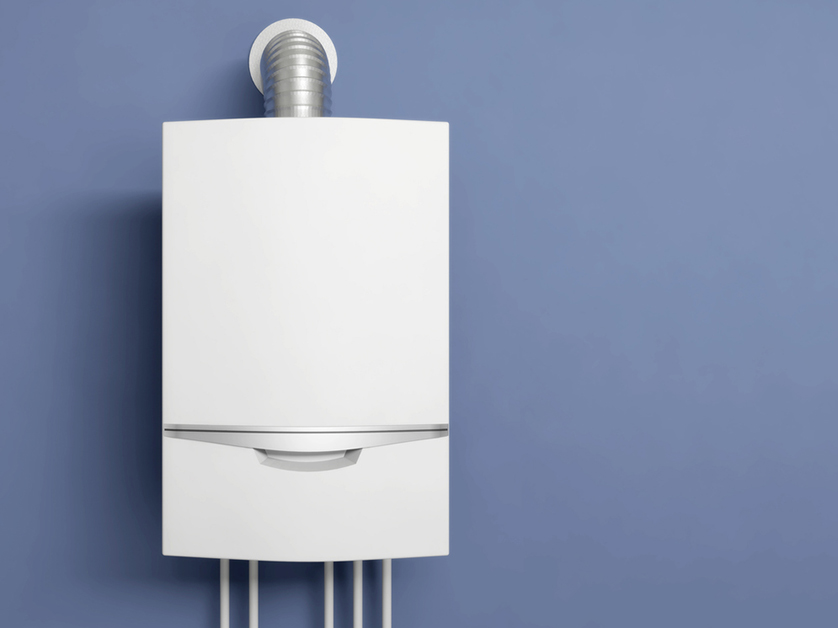
07 Sep. 2024
A Quick Overview of Water Heater Types
Choosing the right water heater is essential for ensuring that your home has a reliable and efficient supply of hot water. With various types available, each with its own specific benefits and limitations, understanding the differences can help you make the best decision for your home. Read on as Plumbing Doctor shares a quick overview of various water heater types.
Storage Water Heaters
The traditional option, storage water heaters, comes with a tank that stores and heats water. Available in both electric and gas models, they are a common sight in many homes. While gas models heat water faster, electric ones are often less expensive. However, they require regular maintenance, such as flushing to remove sediment, and can run out of hot water during heavy use periods.
Tankless Water Heaters
For homes looking for an unlimited supply of hot water, tankless water heaters present an appealing option. These heaters only warm water on demand, leading to higher energy efficiency and cost savings over time. Despite their higher upfront cost and limitation in supplying hot water to multiple fixtures simultaneously, they are ideal for smaller households or those looking to upgrade from traditional storage models.
Heat Pump Water Heaters
Heat pump water heaters, which use the ambient air temperature, provide an energy-efficient solution by transferring heat from the air to the water. This type is particularly appealing for its potential to significantly reduce electricity bills. However, the effectiveness of heat pump water heaters is contingent upon the climate, making them less suitable unless paired with an existing heating system to ensure optimal performance.
Solar Water Heaters
Taking advantage of the sun’s power, solar water heaters are an eco-friendly choice that can provide substantial savings on energy costs. With systems available for both warm and cooler climates, they are versatile but rely heavily on sunlight. This dependency means that during overcast days, the system may not perform as expected.
Condensing Water Heaters
Ideal for homes utilizing natural gas for heating, condensing water heaters capture and utilize exhaust gases to heat water, offering enhanced efficiency. This system is particularly beneficial for larger homes with high hot water demands. However, its requirement for a gas heating system limits its applicability to homes with existing natural gas fixtures.
Get in Touch With Our Team for Quality Water Heater Installation
Whether you’re looking for a water heater for energy efficiency, uninterrupted hot water supply, or eco-friendliness, there is a water heater type that aligns with your preferences and requirements. When it comes to choosing or upgrading your water heater, reach out to Plumbing Doctor! Our team can guide you through the options and help you select the perfect water heater for your home. Call us today at (908) 873-6686 or fill out our contact form to schedule an appointment.
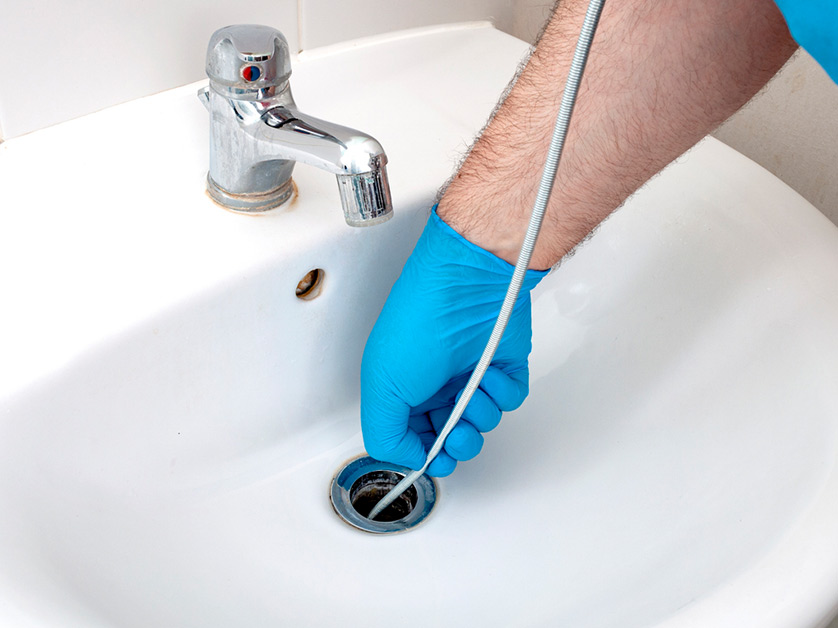
22 Aug. 2024
No, Coca-Cola Won’t Clean Your Drains (and Other Plumbing Myths)
The internet is brimming with creative home remedies for every conceivable problem, including clogged drains. While some DIY solutions might offer temporary relief, it’s essential to differentiate fact from fiction to avoid causing more harm than good to your plumbing system. At Plumbing Doctor, LLC, we’ve encountered numerous myths that can lead to unwarranted damage and unnecessary expenses. Today, we’ll debunk some common plumbing myths, with a spotlight on the often-misunderstood capabilities of Coca-Cola as a drain cleaner.
The Truth About Coca-Cola and Your Drains
Coca-Cola is famed for its refreshing taste and, oddly enough, supposed cleaning capabilities, particularly for unclogging drains. The rationale lies in its acidic nature; Coca-Cola contains phosphoric acid, believed to dissolve blockages in your pipes. However, this acid is not concentrated enough to effectively tackle most clogs, and the sugar content can worsen the problem by creating sticky residues that attract more debris.
Indeed, Coca-Cola as a cheap alternative to professional drain cleaning is nothing more than a temporary fix, as it can mask more significant issues, such as severe clogs or underlying plumbing problems. In such cases, professional inspection and intervention are imperative.
Dispelling Common Plumbing Myths
- Chemical Drain Cleaners: A Quick Fix? Many believe that store-bought chemical cleaners are the most effective solution for clogged drains. However, these harsh chemicals can corrode your pipes and are detrimental to the environment and your health. Furthermore, they often provide only a temporary solution, failing to remove the root cause of the blockage.
- DIY Plumbing Fixes. The allure of fixing plumbing issues yourself is strong, particularly with online guides at your fingertips. While certain minor issues might be manageable, DIY methods can lead to improper repairs, causing more damage. Plumbing Doctor, LLC advises against this approach, especially for the residents of Central New Jersey, who can rely on professional services that ensure safety and efficacy.
- The Myth of Universal Drain Cleaning. It’s a common misconception that all drains can be treated the same way. Each plumbing system is unique, with various types of pipes and mechanisms. For instance, methods that work for a kitchen sink might not be suitable for a toilet or shower drain. Understanding the differences is key to effective and safe drain cleaning.
Professional Solutions: The Way To Go
The best response to a stubborn drain clog is not a bottle of cola or harsh chemical cleaners but a call to your local experts. Plumbing Doctor, LLC provides comprehensive drain cleaning services tailored to the specific needs of your plumbing system. By choosing professional help, you’re not just addressing the immediate problem but also preventing future issues.
While it might be tempting to use Coca-Cola or other household hacks for plumbing fixes, these solutions are often ineffective and potentially harmful. For the residents of Central New Jersey, investing in professional plumbing services is a wise decision. At Plumbing Doctor, LLC, we’re equipped to handle all your plumbing needs, ensuring your system runs smoothly and efficiently. Call us at (908) 873-6686, or fill out our contact form to schedule an appointment.
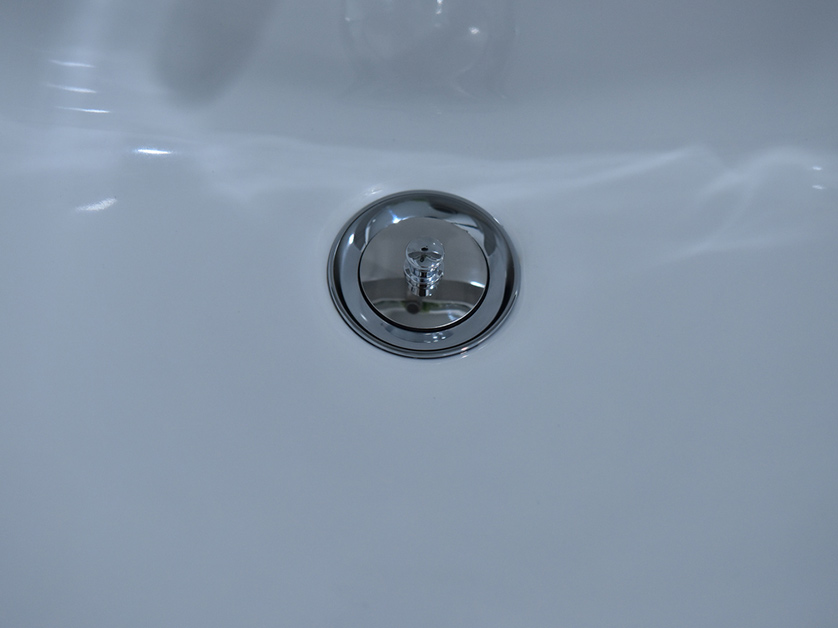
18 Aug. 2024
Help! My Sink Stopper Is Stuck
A stuck sink stopper can cause a significant interruption in your daily routine, preventing water from draining and potentially leading to other plumbing issues. Fortunately, there are several methods you can try to remove or fix this problem yourself before calling in the professionals at Plumbing Doctor, LLC.
Easy DIY Solutions To Unstick Your Sink Stopper
The frustration of dealing with a sink stopper that refuses to budge is familiar to many. However, with some simple tools and techniques, you might be able to solve the problem yourself without needing to seek professional help immediately.
- From Above the Sink. Sometimes, the simplest methods can be effective. Start by trying to pry the stopper up with your fingers. If that doesn’t work, you can use a flat-head screwdriver or a metal nail file to gently leverage the stopper free. Be careful not to damage the surface.
For stoppers that remain stubborn, consider using a suction cup to create the necessary force to pull the stopper up. Ensure the suction cup is smaller than the stopper’s diameter for the best grip. If water is present in the sink, it may actually assist in forming a tight seal with the suction cup.
Utilizing a plunger can also be an effective method. Place it over the drain and apply forceful plunges to create air pressure that may dislodge the stopper. Repeat this action until the stopper moves.
- From Below the Sink Tactics. Accessing the sink stopper mechanism from below offers another avenue for resolution. The first step involves clearing out the area under the sink and locating the horizontal rod that’s connected to the sink stopper assembly.
Once you locate the horizontal rod, try adjusting it by either pushing it down or pulling it upwards. This action might require you to remove or loosen some components, such as the pivot nut that holds the rod in place. Remember, the goal is to realign or readjust the mechanism to free the stopper.
When To Consider Parts Replacement
In some cases, despite your best efforts, the stopper might remain stuck due to corrosion, wear, or damage to the parts themselves. Inspect the horizontal rod, lift rod, and other related components. If any parts appear bent or damaged, replacing them might be the most effective solution.
Identifying the Need for Professional Help
While many stuck sink stopper situations in Central New Jersey homes can be resolved with the methods described above, there are times when the problem may persist or be indicative of a more significant plumbing issue. If you find that the stopper is still stuck after attempting the DIY approaches, or if you’re unsure about tackling the problem yourself, it’s time to call in the experts from Plumbing Doctor, LLC.
A stuck sink stopper can be a nuisance, but it’s often a problem that can be solved with a bit of patience and the right approach. Whether you opt to tackle the issue yourself using the methods outlined above or decide to seek professional assistance from Plumbing Doctor, LLC, know that solutions are within reach to restore your sink’s functionality and peace of mind. Call us at (908) 873-6686, or fill out our contact form to schedule an appointment.
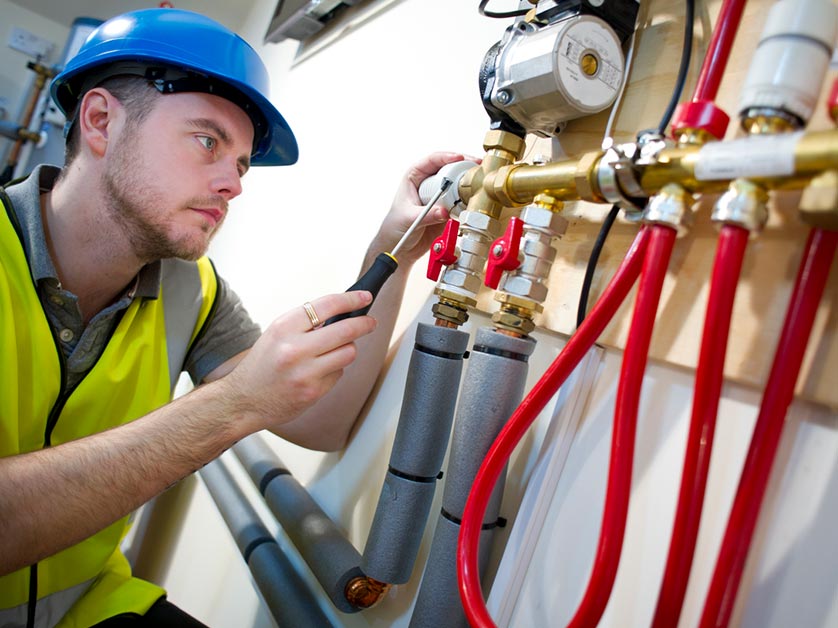
15 Aug. 2024
What Are the Characteristics of a Good Plumber?
When it comes to maintaining the plumbing system of your home or business in Central New Jersey, entrusting the work to a competent plumber is crucial. A good plumber does more than just fix leaks and unclog drains; they ensure the comfort, safety, and efficiency of your property’s water systems. By recognizing the characteristics of a good plumber, you can make informed decisions when choosing a professional for your plumbing needs.
Certification and Experience
A noteworthy characteristic of a reputable plumber is having the necessary certification and substantial experience in the field. In Central New Jersey, like in many other areas, plumbers are required to possess state licenses that validate their expertise in plumbing. This certification ensures that they have undergone rigorous training and have acquired the necessary skills to perform a wide range of plumbing services, including but not limited to drain cleaning, water heater repairs, and leak detections. Experience complements certification, as it denotes a plumber’s exposure to various situations and their capability to resolve complex issues efficiently.
Mechanical Proficiency
Being mechanically inclined is another vital quality of a dependable plumber. A good understanding of the mechanics behind plumbing systems allows plumbers to diagnose problems accurately and implement effective solutions. Whether it’s determining the appropriate kind of piping for a specific application or knowing the intricacies of water heaters and sewer systems, mechanical proficiency is indispensable in the plumbing profession.
Prioritization of Safety
A plumber who prioritizes safety demonstrates a commitment to protecting both themselves and their clients’ properties. Proper safety practices prevent unnecessary risks and ensure that plumbing work is conducted in a manner that adheres to all regulatory standards. This dedication to safety is particularly important in potentially hazardous situations, such as when working with pressurized water systems or in confined spaces.
Effective Communication Skills
Strong communication skills are essential for a plumber. The ability to listen to clients’ concerns and clearly explain the nature of problems, as well as proposed solutions, fosters trust and understanding. Good communication ensures that clients are well-informed about the status of their plumbing issues and the steps being taken to address them. Moreover, this skill is crucial in preventing misunderstandings and ensuring customer satisfaction.
Punctuality and Professionalism
Timeliness reflects a plumber’s respect for their clients’ time and their dedication to providing efficient service. A punctual plumber not only responds swiftly to emergency calls but also adheres to scheduled appointments, thereby minimizing any inconvenience caused by plumbing issues. Professionalism, which encompasses punctuality, also involves respecting clients’ properties and maintaining a clean work environment.
Commitment to Continuous Learning
The plumbing industry is continually evolving, with new technologies and methods being developed to improve efficiency and sustainability. A good plumber is one who stays abreast of these advancements and is committed to continuous learning. This eagerness to adopt new techniques and technologies enhances the quality of service provided to clients in Central New Jersey and beyond.
In Central New Jersey, Plumbing Doctor, LLC stands out as a provider of professional, reliable, and skilled plumbing services. Our team of qualified plumbers is not only certified and experienced but also deeply committed to delivering exceptional service that adheres to the highest standards of safety, efficiency, and customer satisfaction. To get started, call us at (908) 873-6686, or fill out our contact form to schedule an appointment.
- By:Michael Holt
- Certification, Expertise, plumber
- Comments:No Comments
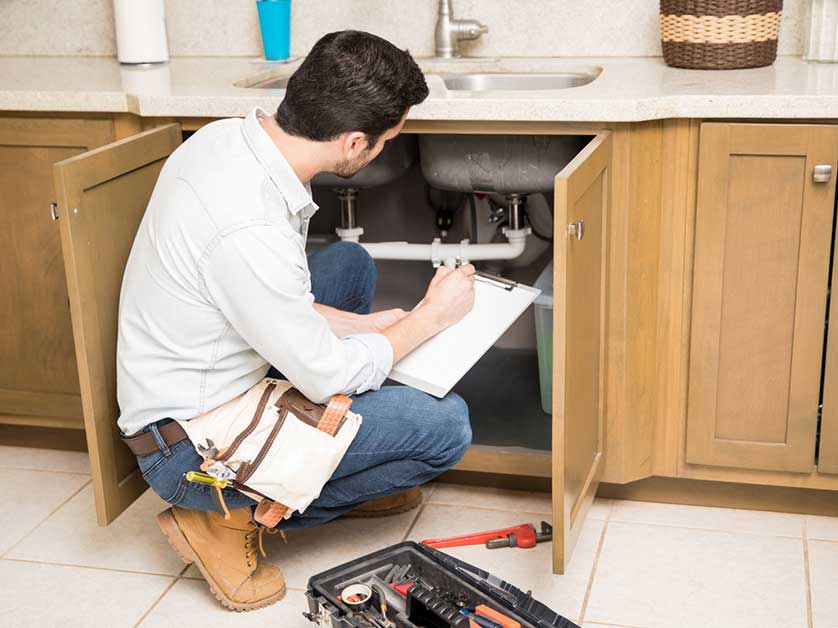
06 Aug. 2024
Why That Low Plumbing Bid Might Be Too Good to Be True
When you need plumbing services, the initial reaction might be to go for the plumbing bid that promises to solve all your problems at the lowest cost. However tempting it may be, this approach can often lead to more significant issues down the line. The plumbing industry, much like any other sector, is not immune to the allure of seemingly too-good-to-be-true offers, which, upon closer examination, reveal a plethora of hidden pitfalls. Plumbing Doctor explains more in this article.
The True Cost of Low Plumbing Bids
Plumbing, as a technical and skill-intensive service, carries inherent costs. When a plumbing bid comes in significantly lower than others, it’s a clear indicator that the contractor may compromise on quality. This could involve using inferior materials, employing unqualified staff, or simply underestimating the scope of the project—all of which can lead to additional costs, delays, and frustrations for you as the homeowner.
The Bait and Switch Tactic
A common strategy employed by unscrupulously low bidders is the dreaded bait and switch. Initially, they may capture your interest with an attractively low offer, only to later reveal that unforeseen complications necessitate additional payments. It not only strains the budget but also erodes trust, highlighting the importance of thorough vetting and skepticism toward bids that seem disproportionately low compared to the market average.
The Demand for Cash Upfront
While some contractors might request a deposit to secure materials, an insistence on significant upfront cash payments with no transparent invoicing or clear breakdown of costs could leave you vulnerable. This practice indicates a lack of financial stability or, worse, a scam in progress, putting you at risk of losing your money without any guarantee of the promised plumbing work being completed.
Consistency in Reviews Matters
Performing due diligence by examining a contractor’s reviews across multiple platforms such as Google Business, Facebook, or Yelp can offer insights into their reliability, quality of work, and customer service integrity. Consistently positive reviews from past clients can serve as a reliable indicator of a contractor’s trustworthiness and professionalism. Conversely, a history of negative feedback or a lack of an online presence altogether should serve as a cautionary tale.
The Implication of Working Without Proper Licensing
A crucial step in safeguarding against potential plumbing scams is verifying the contractor’s licensing, insurance, and bonding status. In Central New Jersey, reputable plumbers are obligated to hold up-to-date credentials, ensuring they meet the state’s regulatory standards for safety and proficiency. Failing to do so not only jeopardizes the quality of work but also exposes you to legal and financial risks should injuries or property damage occur.
Why a Detailed Written Estimate Is Non-Negotiable
Insisting on a detailed written estimate before commencing any work is a smart way to avoid hidden charges and scope creep. This document should outline all project phases, from the initial assessment and materials needed to labor costs and potential variables. It serves as a legally binding agreement that protects both parties and ensures transparency throughout the project lifecycle.
Contact Our Professional Plumbers Today
As enticing as a low plumbing bid might appear, the potential drawbacks cannot be overstated. Remember, investing in a reputable plumbing service might cost more upfront but pays dividends in reliability, workmanship quality, and peace of mind in the long run. At Plumbing Doctor, we offer honest and transparent plumbing services. For a consultation, call (908) 873-6686 or fill out our online form.
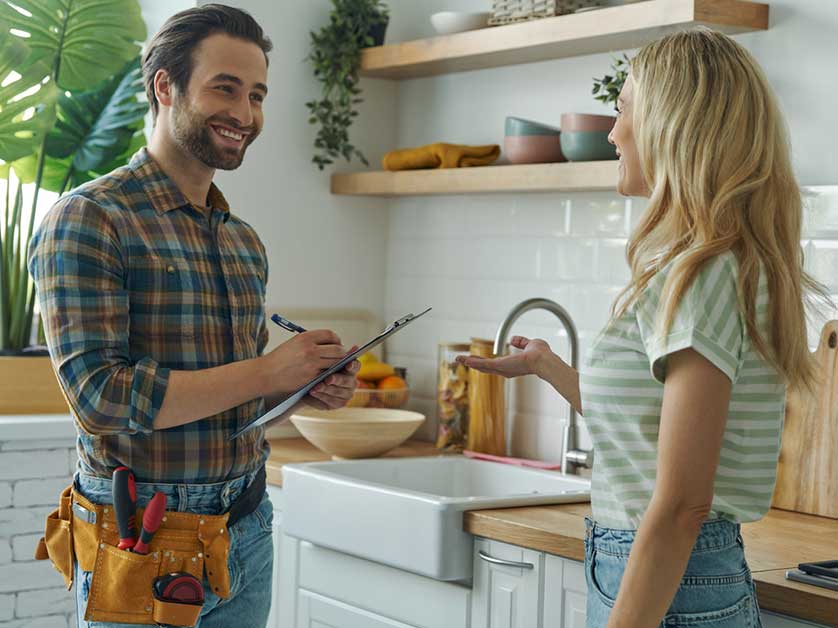
03 Aug. 2024
6 Mistakes to Avoid When Hiring a Plumber
Finding the right plumber, be it for a leaking pipe, a problematic heating system, or a complex bathroom installation, is crucial for your home’s comfort and safety. However, choosing the right plumber can often feel overwhelming. In this article, Plumbing Doctor highlights six mistakes to avoid when looking for a plumber.
- Not Verifying Certification or Licensure
One of the gravest errors you can make when hiring a plumber is failing to check their credentials. A licensed plumber has undergone the necessary training and exams to prove their competence in the field. By ensuring your plumber is licensed, you’re not only adhering to local statutes but also guaranteeing the safety and quality of the work to be performed. Don’t hesitate to ask for proof of licensure, and feel free to verify it with the licensing board.
- Ignoring Reviews
In today’s digital age, overlooking the importance of reviews is a mistake. Client feedback, whether found on social media or on specialized review platforms, offers invaluable insights into a plumber’s reliability and quality of work. Be wary of plumbers with a pattern of negative reviews, especially those noting incomplete, delayed, or shoddy workmanship. Homeowners freely share their experiences online, helping you filter out less reputable plumbers.
- Not Hiring a Plumber at All
Attempting to solve a plumbing problem on your own might seem cost-effective initially, but plumbing is a complex field that requires specialized knowledge and tools. DIY fixes can lead to additional issues or even exacerbate the problem. Professional plumbers not only solve the issue more efficiently but also inspect for other potential problems, saving you money and stress in the long run.
- Putting Off Service Calls
Ignoring or delaying minor repair needs, such as a dripping faucet or a slow drain, can lead to significant damage over time. For instance, a small leak can escalate into extensive water damage, mold growth, or structural issues. The weather can also contribute to plumbing problems worsening quickly, so addressing issues promptly with a professional can save you a great deal of inconvenience and expense.
- Forgetting to Check Their Business Hours
Plumbing emergencies don’t adhere to a 9-to-5 schedule; they can happen at any hour of the day or night. Checking a plumber’s availability is crucial, especially for urgent issues. Opt for plumbing services that offer 24/7 emergency calls. This ensures that you’re covered whenever an unexpected problem arises, preventing minor issues from becoming major emergencies.
- Failing to Consider Future Service Calls
Thinking ahead can save you significant amounts of money and hassle. Establishing a good relationship with a trustworthy and skilled plumber can be a boon for future service needs. Many plumbers offer service agreements that provide regular inspections and maintenance, not only helping to prevent issues but also prioritizing your calls and offering discounts on services.
Get in Touch With Our Experienced Plumbers
If you are looking for reliable plumbers, reach out to Plumbing Doctor today! Our team ensures that your plumbing needs are met with professionalism and expertise, keeping your home safe and comfortable. For inquiries, call (908) 873-6686 or visit our contact page!
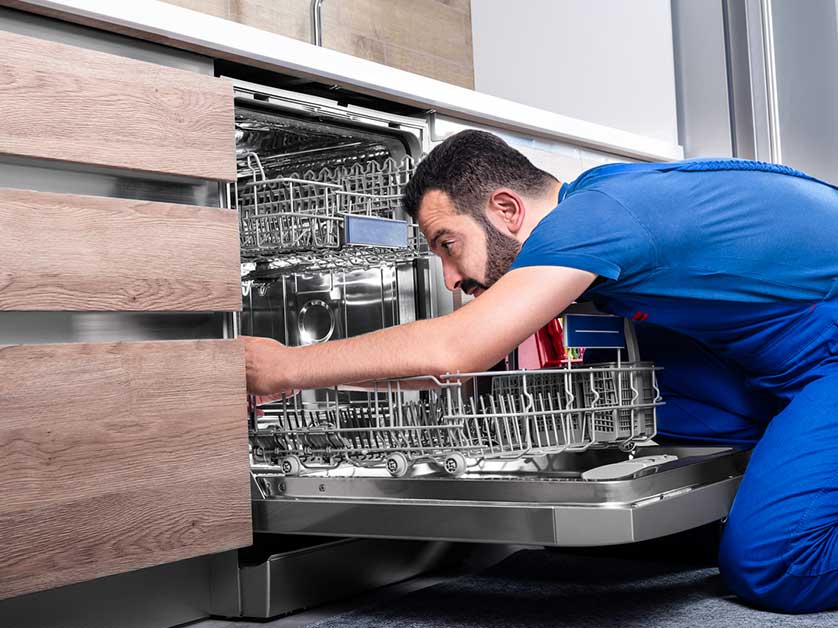
02 Aug. 2024
Why Isn’t My Dishwasher Draining?
A dishwasher not properly draining is not just an inconvenience but also a potential risk to your appliance’s functionality and your home’s cleanliness. Read on as Plumbing Doctor, LLC delves into the common reasons for drainage issues and how to address them effectively.
Check the Basics First
First, it’s crucial to ensure that your dishwasher has completed its cycle fully. A prematurely opened door might leave you with standing water. If your dishwasher stops mid-cycle, try running a complete cycle again. If the problem persists, attempting to reset your dishwasher or using the “cancel” feature could jump-start the drainage process. Simple fixes like these can often save a lot of time and hassle.
Potential Clog in the Filter or Drain Hose
One of the most common culprits behind a dishwasher’s inability to drain is a clogged filter or drain hose. Food particles, especially fibrous ones, can cause significant blockages if dishes are not scraped clean before being loaded. If you are dealing with hard water or frequent cooking, you may encounter this issue more frequently. It’s advisable to regularly inspect and clean the filter and hose to prevent such blockages, ensuring smooth operation.
The Role of Your Garbage Disposal
A clogged garbage disposal or an improperly installed hose can prevent water from draining out of your dishwasher. To resolve these drainage issues, try running your disposal to clear any blockage. Additionally, maintaining a clear path in the drain hose by ensuring it has no kinks or obstructions is critical for proper drainage.
Inspect and Clean the Air Gap
An often-overlooked component is the air gap installed alongside your kitchen faucet. This serves as a crucial part of preventing sewage from backing up into the dishwasher. If your home features an air gap, checking for and cleaning out any debris can be a game-changer in resolving draining issues.
Dealing With Clogged or Damaged Hoses
After ruling out simpler issues, inspecting the dishwasher’s drain hose for kinks, blockages, or damage is the next step. A hose obstructed by debris or installed improperly can disrupt water flow, leading to standing water in your dishwasher. If necessary, replacing a damaged or persistently clogged hose is a relatively straightforward solution that homeowners can undertake or call a professional for assistance.
Let Our Plumbing Experts Check Your Drainage
Regular maintenance and cleaning of your dishwasher can prevent many drainage issues from arising. However, when the problem persists or you’re in doubt about handling any aspect of your dishwasher’s maintenance, Plumbing Doctor, LLC is here to help. Our expert team is equipped to address any plumbing concerns, ensuring your dishwasher runs smoothly again. Give us a call today at (908) 873-6686, or fill out our online form.
- By:Michael Holt
- dishwasher, Drainage, plumber
- Comments:No Comments
COVERAGE AREA:
Central New Jersey
EMAIL US:
contact@plumbingdoctornj.com
24/7 EMERGENCY CALL
908-873-6686
